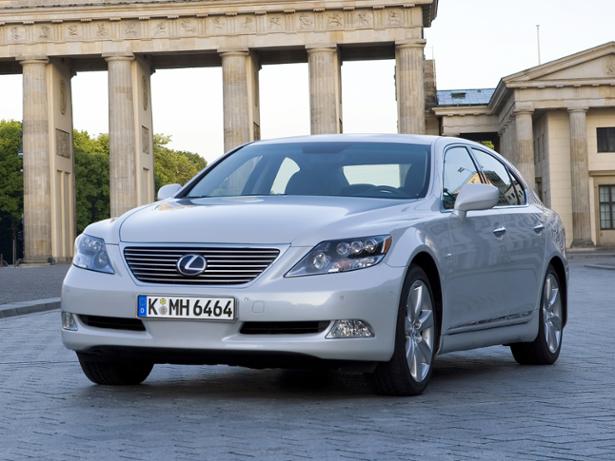Speeding fines and tickets explained

In this article
- How speeding fines work
- How much is a speeding fine?
- What happens if you're caught speeding?
- What happens if you receive a speeding ticket?
- What happens if you're prosecuted for speeding?
- How to contest a speeding ticket
- Contesting a speeding offence in court
- Speeding tickets in Scotland and Northern Ireland
Whether you think speed cameras are a tool to inspire safer driving or only there to line the government’s pockets, they are here to stay.
If you don’t want to find yourself faced with a penalty notice, and the hefty speeding fine and penalty points on your licence that come with it, it’s worth understanding the consequences of getting caught speeding, how tickets are enforced and how you can appeal them if you think there’s been a mistake.
Looking for a new car? Head straight to our new and used car reviews to find the perfect model for you.
How speeding fines work
Exceeding the speed limit by too much is illegal. If you're caught by a speed camera or police officer, any of the following could happen:
- You may be given a verbal warning. This may happen if an officer stops you on the road.
- You may be asked to attend a speed-awareness course, which you will be expected to pay for. This may not be an option on repeat offences.
- You may be prosecuted.
How much is a speeding fine?
If you are prosecuted, your fine and punishment will depend on how fast you were driving. You will be put into one of these bands:
Band system speeding penalties
| Speed limit (mph) | Band A: recorded speed (mph) | Band B: recorded speed (mph) | Band C: recorded speed (mph) |
|---|---|---|---|
| 20 | 21-30 | 31-40 | 41+ |
| 30 | 31-40 | 41-50 | 51+ |
| 40 | 41-55 | 56-65 | 66+ |
| 50 | 51-65 | 66-75 | 76+ |
| 60 | 61-80 | 81-90 | 91+ |
| 70 | 71-90 | 91-100 | 101+ |
| Penalty points | Three | Four to six* | Six* |
*Drivers will receive penalty points or a disqualification.
- Band A - you will be put in this band if you were between 1 and 9mph over the legal limit. You will be issued with a fixed penalty notice (speeding ticket), which constitutes three penalty points on your licence and a fine between 25% and 75% of your weekly income. If there are other factors, such as driving near a school or driving a heavy-goods vehicle, you may need to appear in court and face a larger speeding fine.
- Band B - you will be put in this band if you were between 11 and 20mph over the legal limit. You may need to appear in court where you would be fined between 75% and 125% of your weekly income. Between four and six penalty points will be added to your licence or you would be banned from driving for between seven and 28 days.
- Band C - you will be put in this band if you were 21mph or more over the legal limit. You may need to appear in court and face a fine anywhere between 125% and 175% of your weekly income. You will be banned from driving for seven to 56 days or get six penalty points on your licence.
- Other factors can push you into bands D, E or F. Scroll down to find out more about these bands.
- £1,000 is still the maximum speeding fine unless you were driving on a motorway - in this case, the maximum fine increases to £2,500.
- Certain factors, such as having no previous convictions, good character and if you were speeding as a result of a genuine emergency, can reduce your fine.
Factors that can push you into bands D, E or F include prior convictions, offences committed while on bail, poor road and weather conditions, driving a large vehicle, towing a caravan or trailer, carrying passengers or a heavy load, driving for hire, evidence of unacceptable driving over the speed limit, location and if there was a high level of traffic or pedestrians in the vicinity.
- Band D - you will be fined between 200% and 300% of your weekly income.
- Band E - you will be fined between 300% and 500% of your weekly income.
- Band F - you will be fined between 500% and 700% of your weekly income.
Got a parking ticket? You may be able to contest it. See our guide on car parking tickets and fines
What happens if you're caught speeding?
The owner of the car will be sent a Notice of Intended Prosecution (NIP), detailing the offence. Plus, a document called a Section 172 notice.
Whether you agree with the NIP or not, within 28 days you must complete the Section 172 notice declaring who was driving the car at the time of the offence.
If you were stopped by a police officer, they can give you a verbal warning of prosecution and a NIP is not required if the offence was part of a road traffic accident.
What happens if you receive a speeding ticket?
Once the NIP is returned, you’ll receive a conditional offer of a Fixed Penalty Notice (FPN). You can either pay the fine and accept the penalty points, or contest the fine in court.
To uphold the fine, a court only needs to prove you were speeding. Saying that you did not intend to speed, didn’t realise you were speeding or you only exceeded the limit briefly won’t hold water.
What happens if you're prosecuted for speeding?
If you have eight or more points on your licence, or you were driving way above the speed limit, the police may choose to prosecute you in court.
In this eventuality, you will be sent a court summons. The police have up to six months to issue it.

How to contest a speeding ticket
If you disagree with your speeding charge, you can contest it. A fine is unlikely to be overturned unless you can prove one of the following:
- You were not speeding.
- You weren't driving when the offence took place.
- There was no proper notice of the speed limit.
- The vehicle caught speeding wasn't yours.
- Your car was stolen.
Some police forces accept informal appeals for speeding tickets. These should take the form of letters that detail why you believe you shouldn’t have received a speeding notice.
If your local police force does not accept informal appeals or your appeal was rejected, you can launch a formal appeal by requesting a court hearing. You can do this by completing the relevant part of your Fixed Penalty Notice.
It’s worth seeking legal advice before you embark on a court hearing, to find out if you're likely to win and the consequences of losing.
To read more about contesting speeding and parking tickets, see our guide on cars and consumer rights.
Contesting a speeding offence in court
These are the steps you may need to go through.
1. Plea and mitigation form
If a legal expert thinks you stand a chance of overturning the ticket, then you’ll need to complete and return a plea and mitigation form.
You can either plead guilty with mitigating circumstances or not guilty.
Guilty with mitigating circumstances - If you aren’t facing a driving ban, you can usually plead guilty by post. In your statement of mitigation you’ll be able to outline why you were speeding and why this warrants a more lenient penalty.
This information will be presented in court and may persuade the magistrate to impose a lighter punishment.
Not guilty - At the speeding charge hearing you’ll plead not guilty. You’ll then be asked if you wish to call any witnesses and your case will be scheduled for a trial.
You or your legal representative will attend the trial to defend your plea.
Sometimes you’ll be given the option to move through the initial hearing process by post, in which case you won’t need to attend the hearing.
2. Request evidence of the speeding offence
You can ask for the police and prosecutor’s evidence of the offence before the hearing. This can be helpful if you can’t remember who was driving, believe an error was made identifying the vehicle or you think a mistake was made when your speed was recorded.
You or your legal counsel can base your defence on these findings.
3. The speeding offence court appearance
At the trial, the prosecution must prove you were the driver of the vehicle at the time the offence took place and your speed exceeded the limit for that stretch of road.
4. Guilty or not guilty
If you’re found guilty:
- you can be fined up to £1,000 (£2,500 if you were speeding on a motorway)
- between three and six penalty points can be added to your licence
- you may be disqualified from driving if you were more than 30mph over the limit.
If you're found not guilty then no further action will be taken.
A top-notch dash cam can help keep you safe on the road and provide footage for your insurer - see our expert picks of the best dash cams.
Speeding tickets in Scotland and Northern Ireland

Speeding ticket enforcement in Scotland and Northern Ireland works in much the same way as it does in England and Wales, but there are some differences:
- In Scotland, speeding offences are reported to the procurator fiscal for prosecution. Any non-payment will normally be referred to the district court.
- Northern Irish drivers who commit a speeding offence in Britain are able to accept endorsement points on their licence by applying to the DVLA for a GB counterpart licence. This means the driver can take advantage of the fixed penalty system and won’t need to go to court.
Speeding tickets in the EU
Since the UK left the EU, local authorities in the EU can no longer send fines to UK drivers who are caught by speed cameras on the continent.
This is due to the end of the Cross Border Enforcement directive, which was introduced in 2015 and allowed EU countries to impose driving penalties of cars registered in other EU nations.
The end of enforcement works both ways. UK authorities will also no longer be able to prosecute EU drivers once they’ve returned home.
If you’re caught speeding on the continent by the police, you can still be issued an on-the-spot fine (or worse, depending on the severity of the offence).
How to avoid speeding fines
The easiest and safest way to avoid speeding fines is to obey the speed limit. But as cars get more powerful and the ride more stable, it can be easy to creep over the legal limit - especially on roads you are familiar with.
Dedicated sat navs, sat nav apps and some on-board car computers can alert you when you break the speed limit, prompting you to slow down and stay safe.
These same devices can also flag when you’re nearing a speed camera, giving you time to check your speed and ensure you aren’t fined. Having advance warning so you can check your speed hasn't crept over the limit is useful, as the authorities are under no obligation to signpost whether speed cameras are in operation on a road.
It's important that you buy a sat nav that's going to help support your driving. We've come across sat navs that give confusing directions and are difficult to follow, which makes driving stressful. Our expert tests reveal the best sat navs.
If your car has cruise control, you can set it to a maintain a steady speed to help you stay within the legal limits. By setting your cruising speed to 70mph before hitting the motorway or 30 to 40mph for driving around town, you can maintain a steady speed without needing to constantly glance at your speedometer.
You can still accelerate past your limit if needs be, but once you stop the cruise control will adjust back to your set speed.
To find your perfect car for your needs, head to our new and used car reviews.
Compare car insurance
Find the right policy for your vehicle using the service provided by Confused.com
Get a quote now





















